If you want to adorn your pergolas, there’re different types of plants whose foliage and flowers bloom over the rustic old look. Here’s the list persuading you to create a plant haven in your outdoor corner by transforming a straightforward crossbeam framework into colorful and alluring canopies with a great many climbers.
One of our numerous chic garden pergola ideas is to grow stunning plants as a pergola. To help you pick the finest plants to grow or choose for your yard, we’ve broken down the top pergola plant ideas, including climbing foliage and flowers.
Best climbing plants to add a unique touch to your pergola are right below:
#1. Honeysuckle
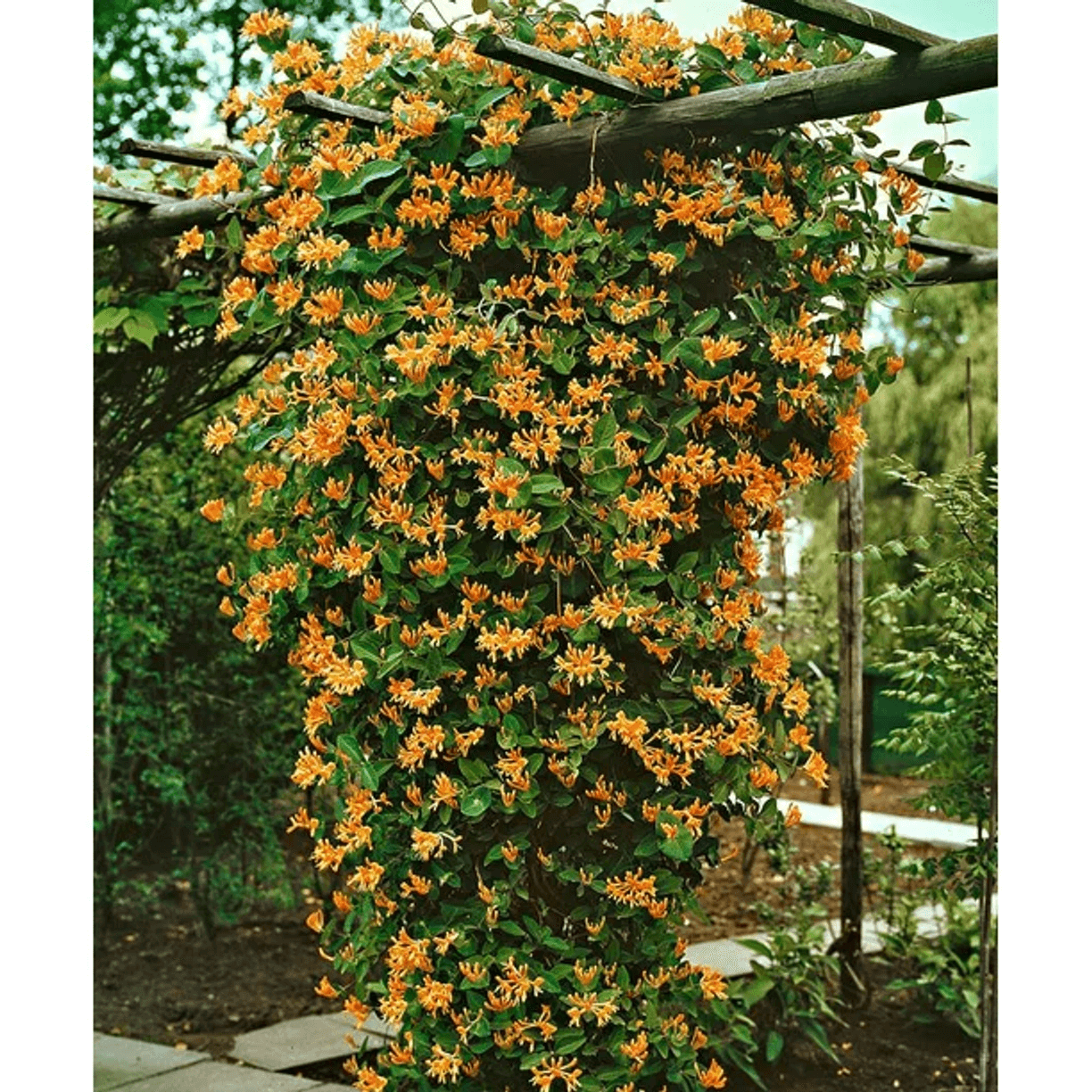 Source: Gardening Know How
Source: Gardening Know How
Everyone is always attracted by the colorful and fragrant honeysuckle that would be a great addition to any landscape. Growing climbing honeysuckle in moist but well-drained soil in partial shade, but face the stems in the sun at the base of a west-facing wall, fence or pergola.
#2. Passion Flowers
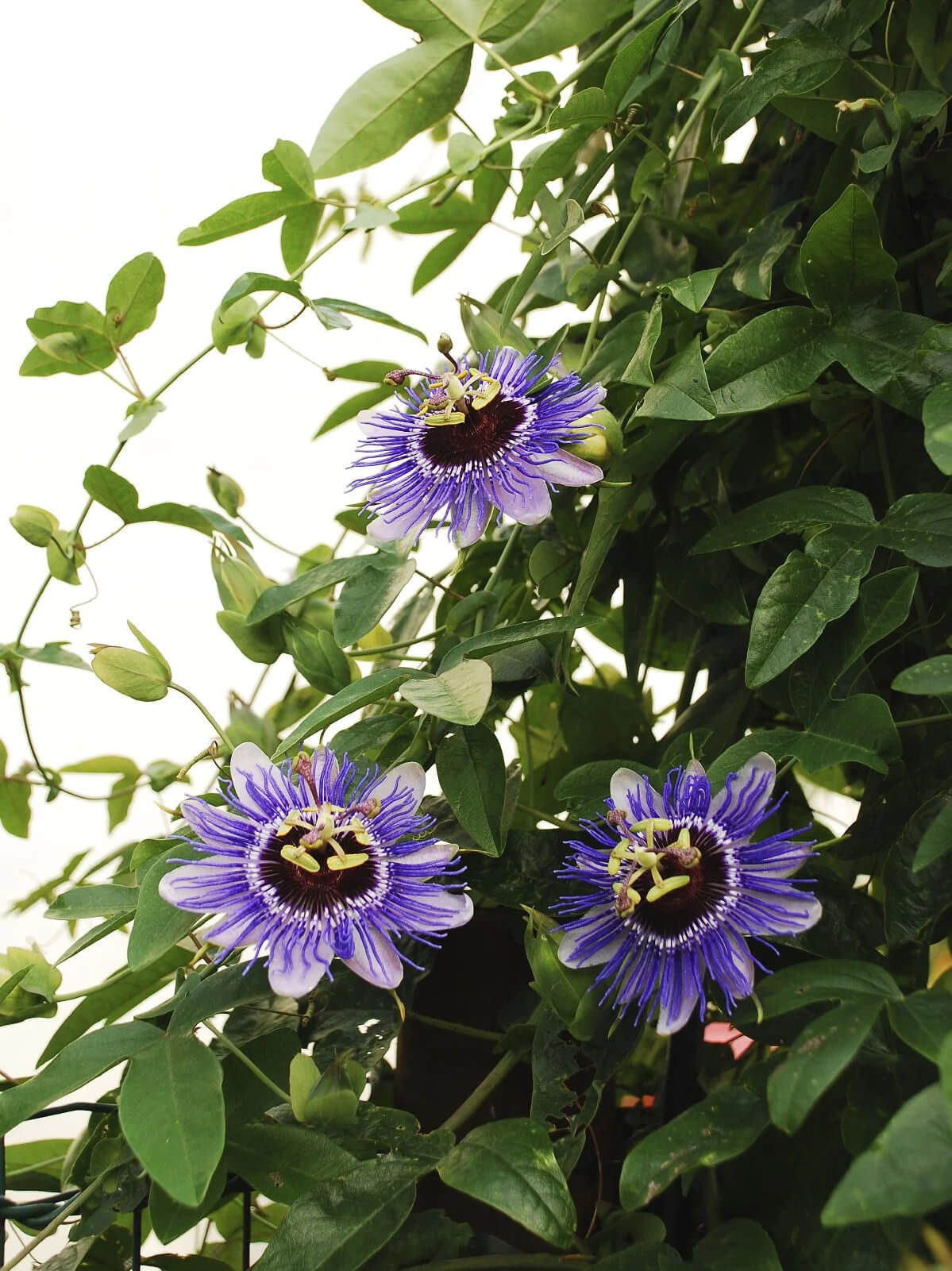 Source: Gardening Know How
Source: Gardening Know How
As one of the most popular vines, they are happy to grow along a trellis, fence, or pergola. Cultivate them in full sun to partial shade, in well-drained soil. Don’t forget to trim the branches to keep the plants neat and limit damage.
#3. Potato Vine
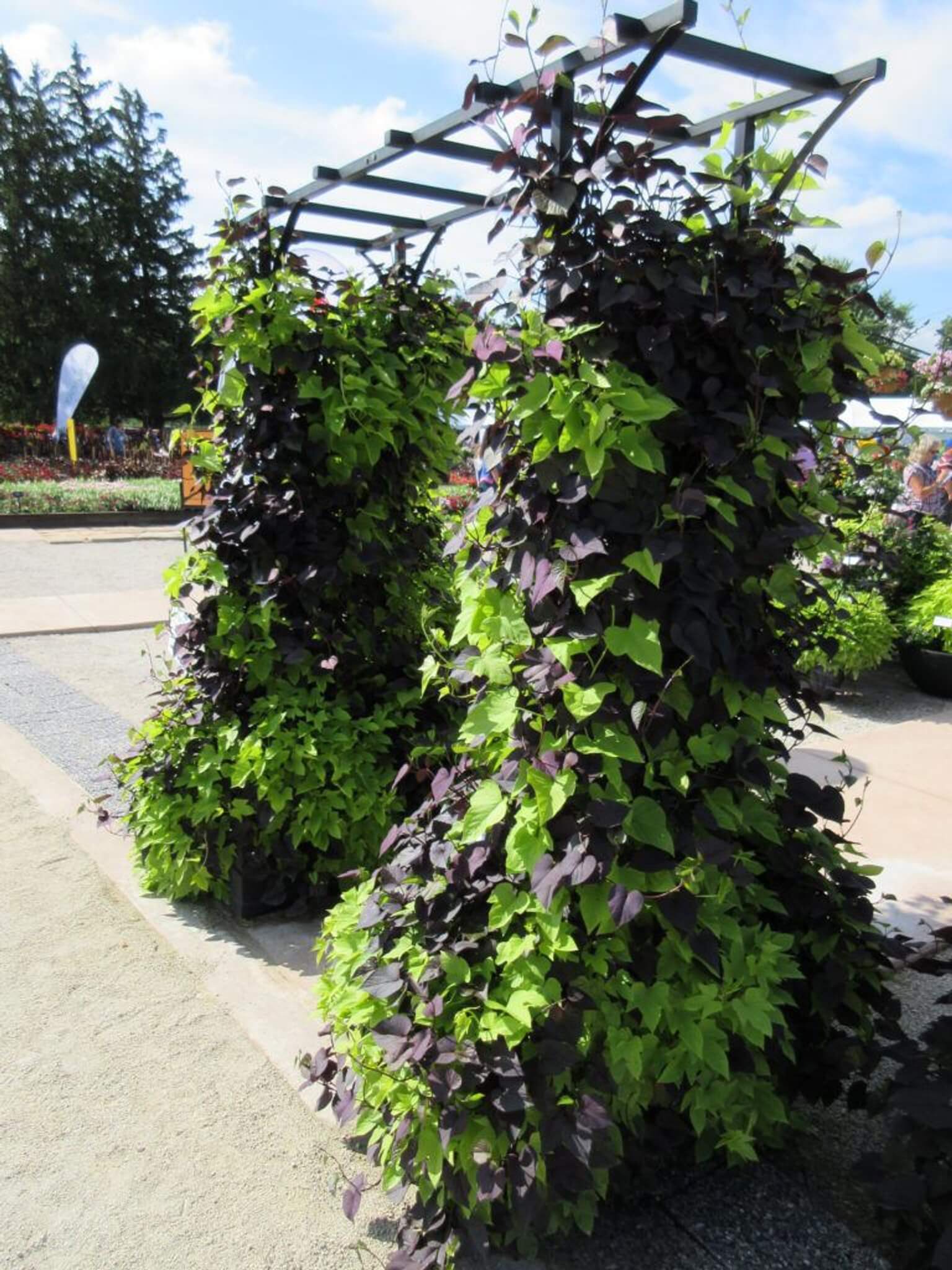 Source: Rotary Botanical Gardens
Source: Rotary Botanical Gardens
Sweet potato is a delightful late bloom that is worth your waiting and efforts. It’s a rapid green grower that climbs greedily and wraps itself in anything it can get hold of, so remember to put up a trellis for them, or put them near the fence or pergola. Sweet potato vine grows practically anywhere near the sun, maybe from full sun to full shade.
#4. Grapevines
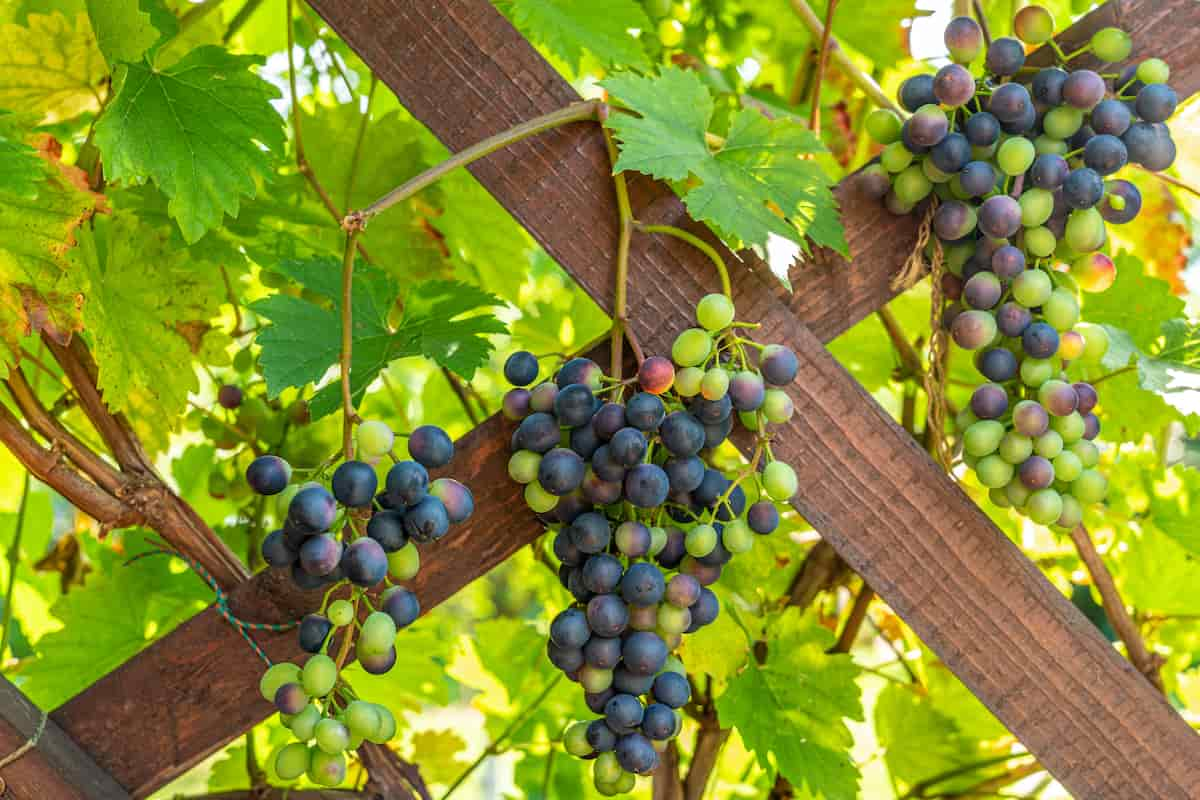 Source: Minneopa Orchards
Source: Minneopa Orchards
Growing grapes on the pergola is the best idea for producing home fruits and adding an amazing look with small round grapes to the garden. Whatever you want, wine or jam, or just simply a love with vines, grapes are a preference for growing vertically.
#5. Clematis
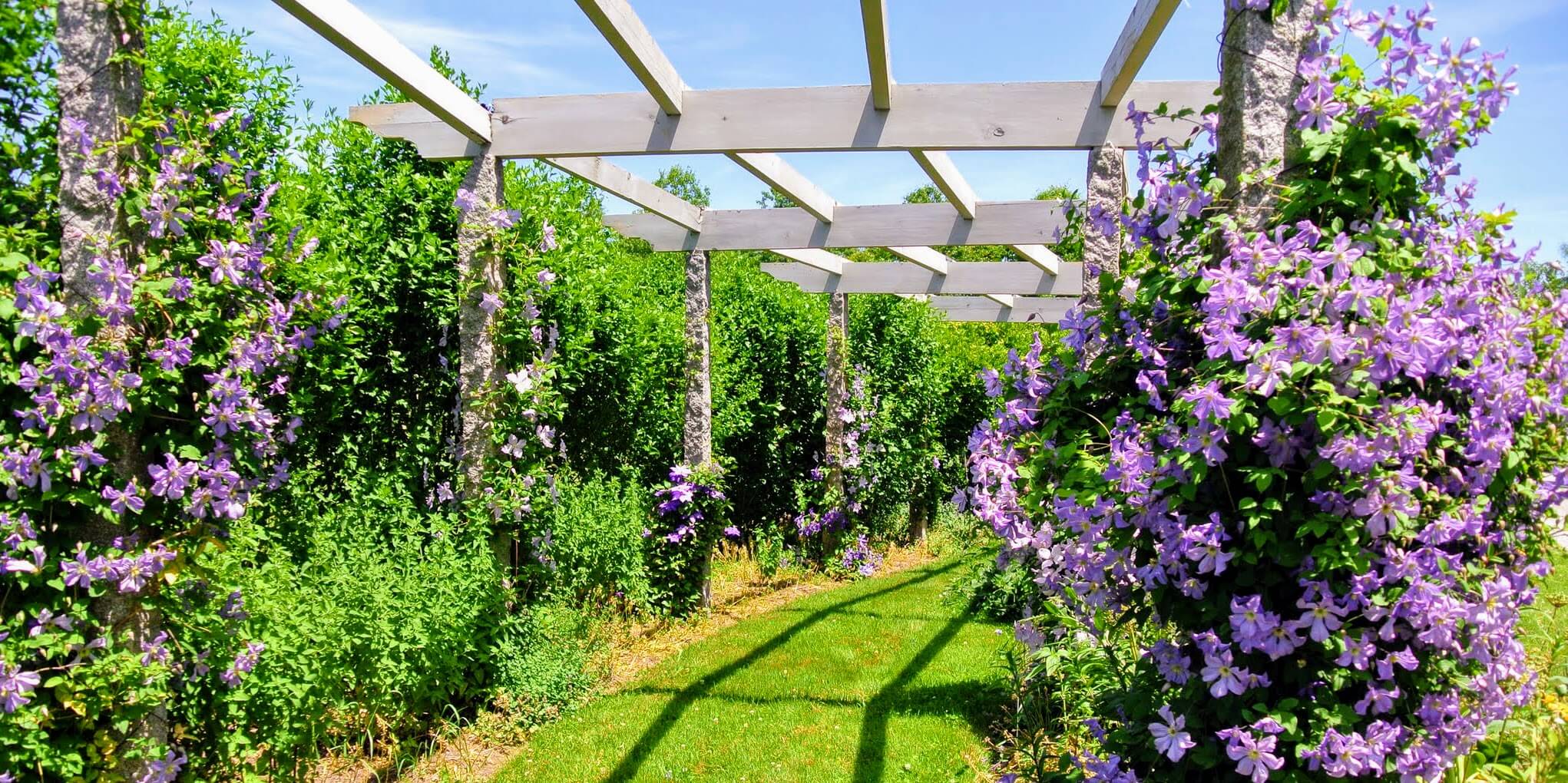 Source: The Martha Stewart Blog
Source: The Martha Stewart Blog
Clematis are long-lived perennial vines and they play an important role in any flower garden. As they scramble up trellises, climb over arbors and thread themselves through other plants, clematis weaves a rich tapestry of color and texture.
#6. Climbing Rose
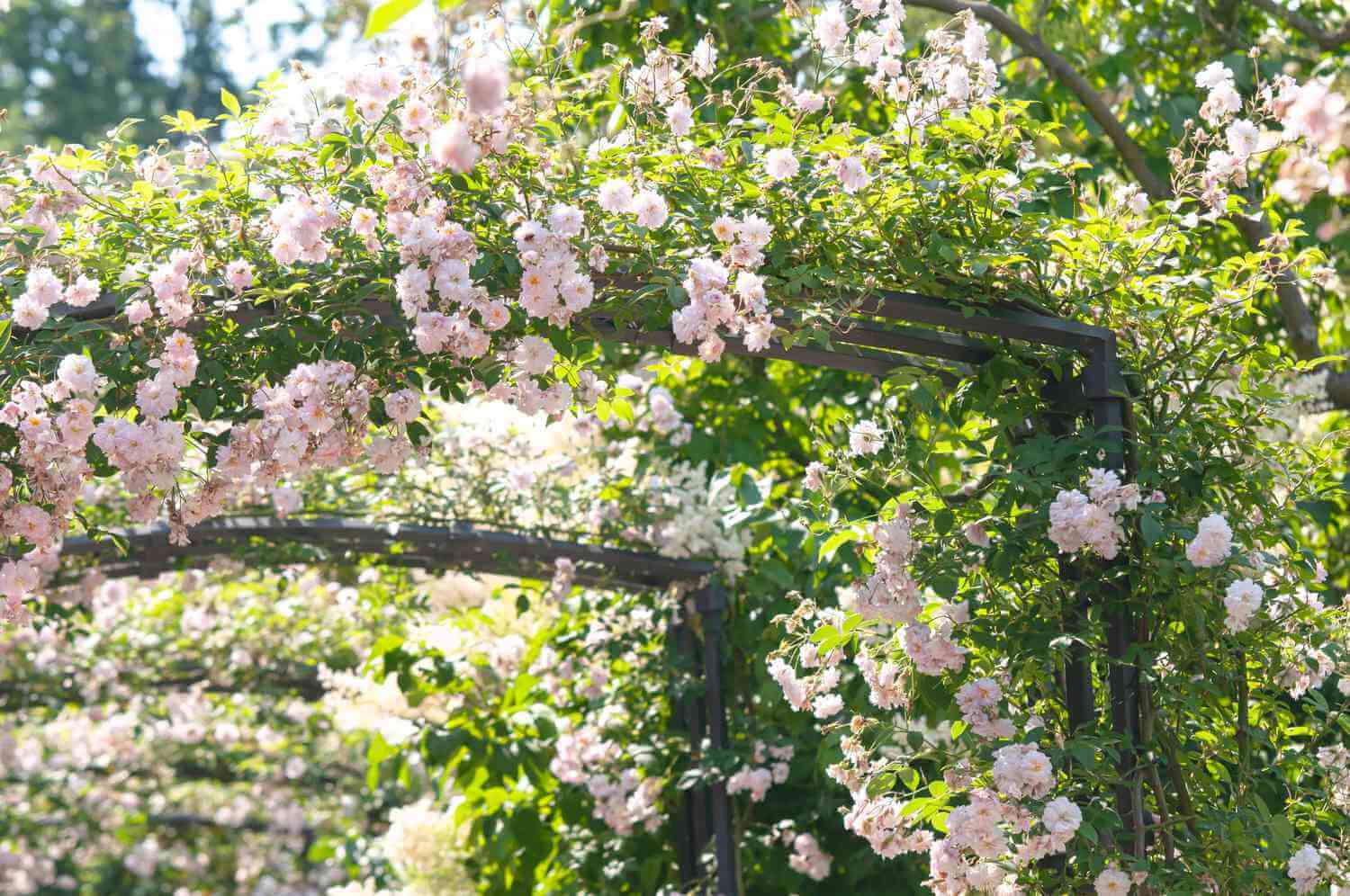 Source: The Spruce
Source: The Spruce
Training roses to climb themselves gives them sustainable growth and even creates a private natural canopy for yourself, right upon your pergola! However, once decided to grow and train your roses, you will need to tie them tightly to support their structure.
#7. Wisteria
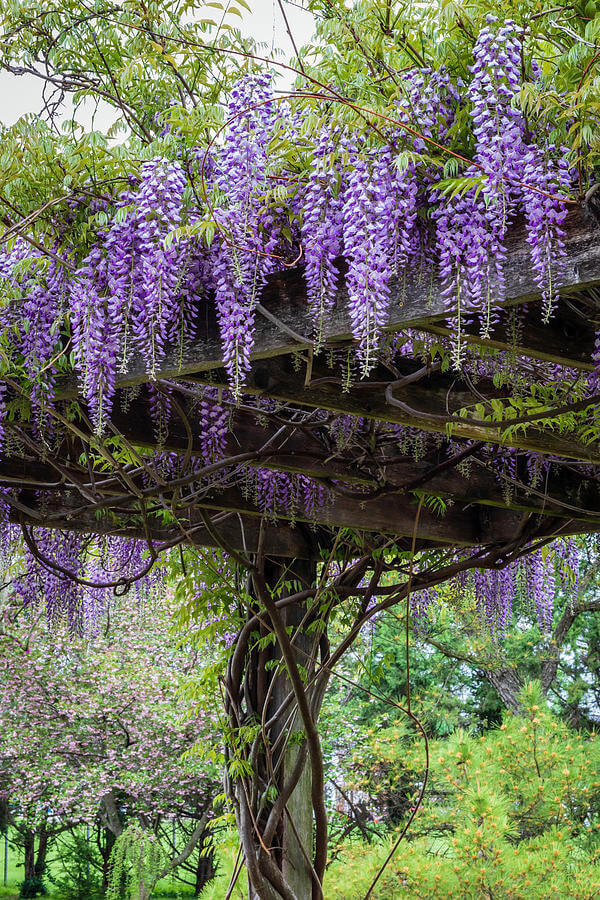 Source: Pixel
Source: Pixel
Being well-known for climbing over large supporters like pergolas, Wisterias are hardy, vigorous climbers reaching over 10m (33ft) in height and width. You will need to provide a sturdy and reliable structure in the form of wires or trellises against a wall, or a garden structure like a pergola or arch. Wisteria can also be trained up a tree or grown-up support to form.
#8. Trumpet Vine
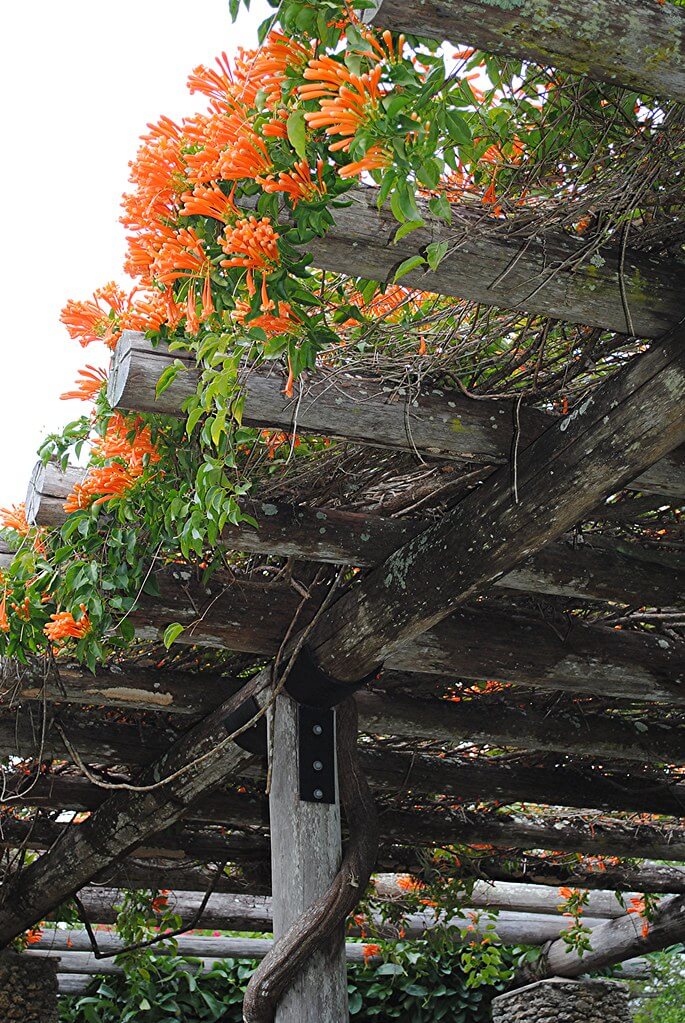 Source: Flickr
Source: Flickr
Plant them on sturdy and hard-to-break structures like fences or pergolas. Remember not to grow them near the house as their aerial roots can cause damage to the structure, and don’t let them approach the tree because they can choke it.
#9. Crimson Glory Vine
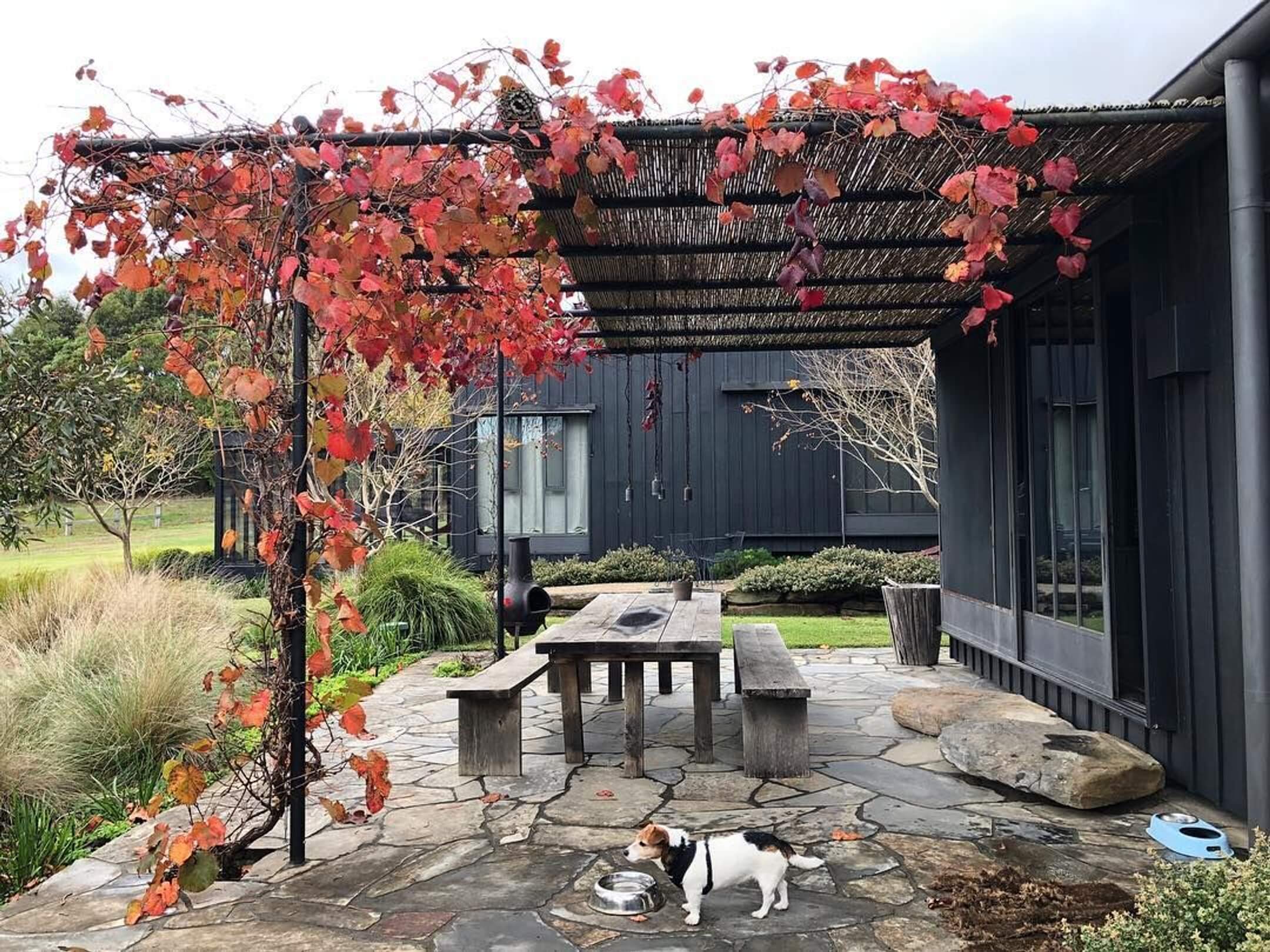 Source: Pinterest
Source: Pinterest
This vine will grab all your attention with its highly ornamental foliage and colorful red shape. Its eager-to-strive habit is suitable for our busy daily life that would be a great factor in improving your home landscape. Whether you wish to cover an old fence, or a private corner under a pergola, the presence of these vines will bring the desired result.
#10. Rangoon Creeper
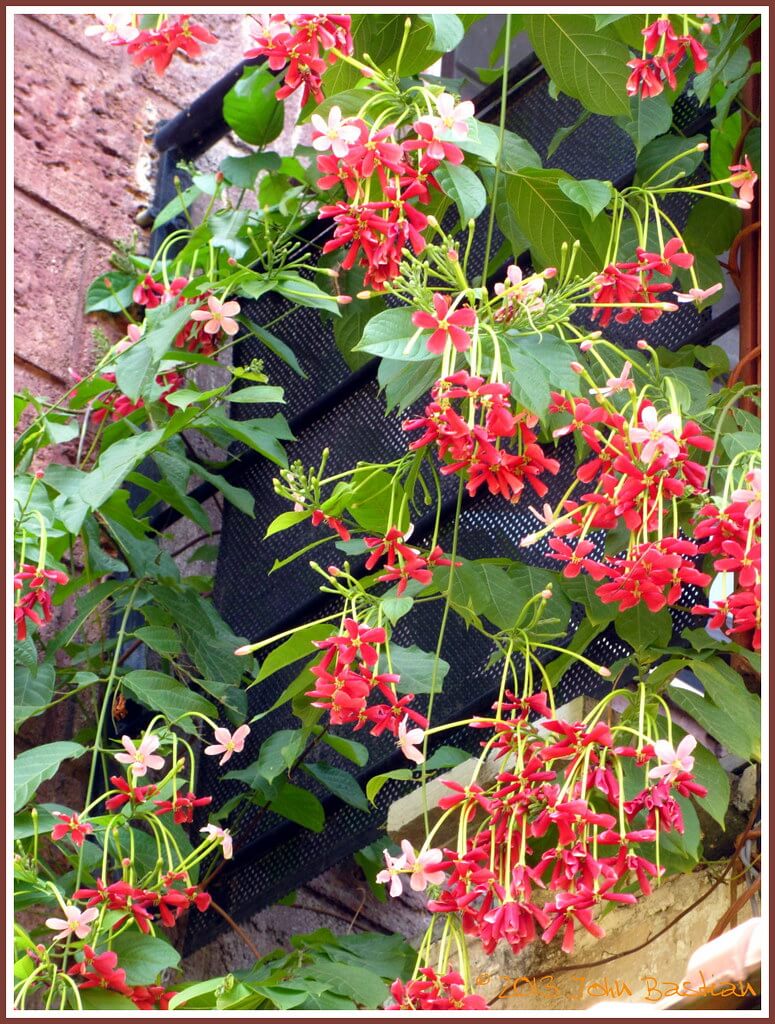 Source: Flickr
Source: Flickr
This enchanting bloom will catch your eyes and they even come in abundance as they’re bushy vines covering all of the spotlights in your garden. It’s a popular climber in tropical gardens, hardy, quick growing, and needs strong support as plants are long-lived. It can also grow healthily if planted in a pot and by regular pruning.
#11. Golden Hops
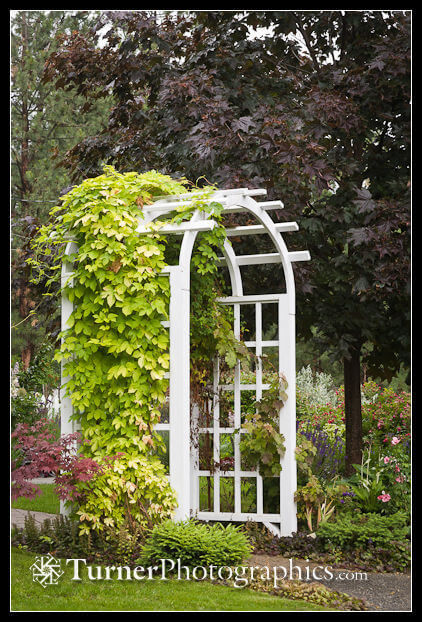 Source: Turner Photographics
Source: Turner Photographics
Golden hops, a decorative vine that climbs fences or trellises and offers seclusion and background foliage, is admired for its yellow-green leaves. Hops are a valuable plant for home brewers since they are used in beer. Hops plants are perennials, so they thrive and produce year after year even if they lose their leaves in the winter and the older vines need to be cut down.
#12. English Ivy
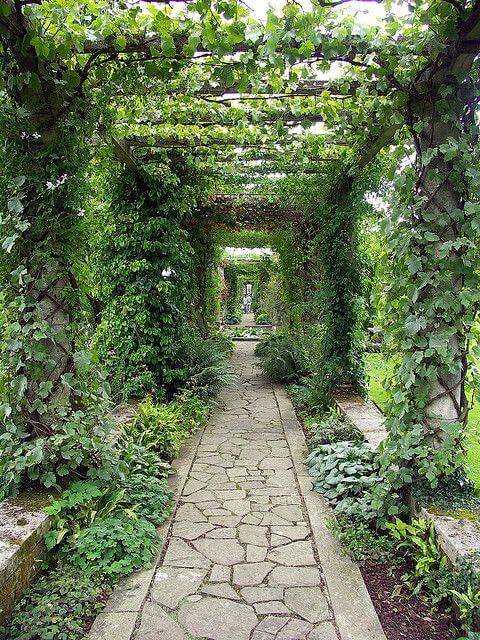 Source: Pinterest
Source: Pinterest
These plants are not only beautiful but also beneficial. Grow English ivy as a screen on a trellis or as a cover for ugly buildings and structures to block out undesirable vistas. The vines are the perfect ground cover since they thrive in shadow, which is why grass won’t grow below a tree.
#13. Jasmine
 Source: Backyardscape
Source: Backyardscape
Grown in warm and mild climes, Jasmine is a delightful vine to plant. It has exquisite, fragrant blooms with glossy green foliage on both bushes and vines. Train jasmine to climb a fence, trellis, or other similar structure to create a lovely privacy screen or vertical accent in your landscape.
#14. Moonflower
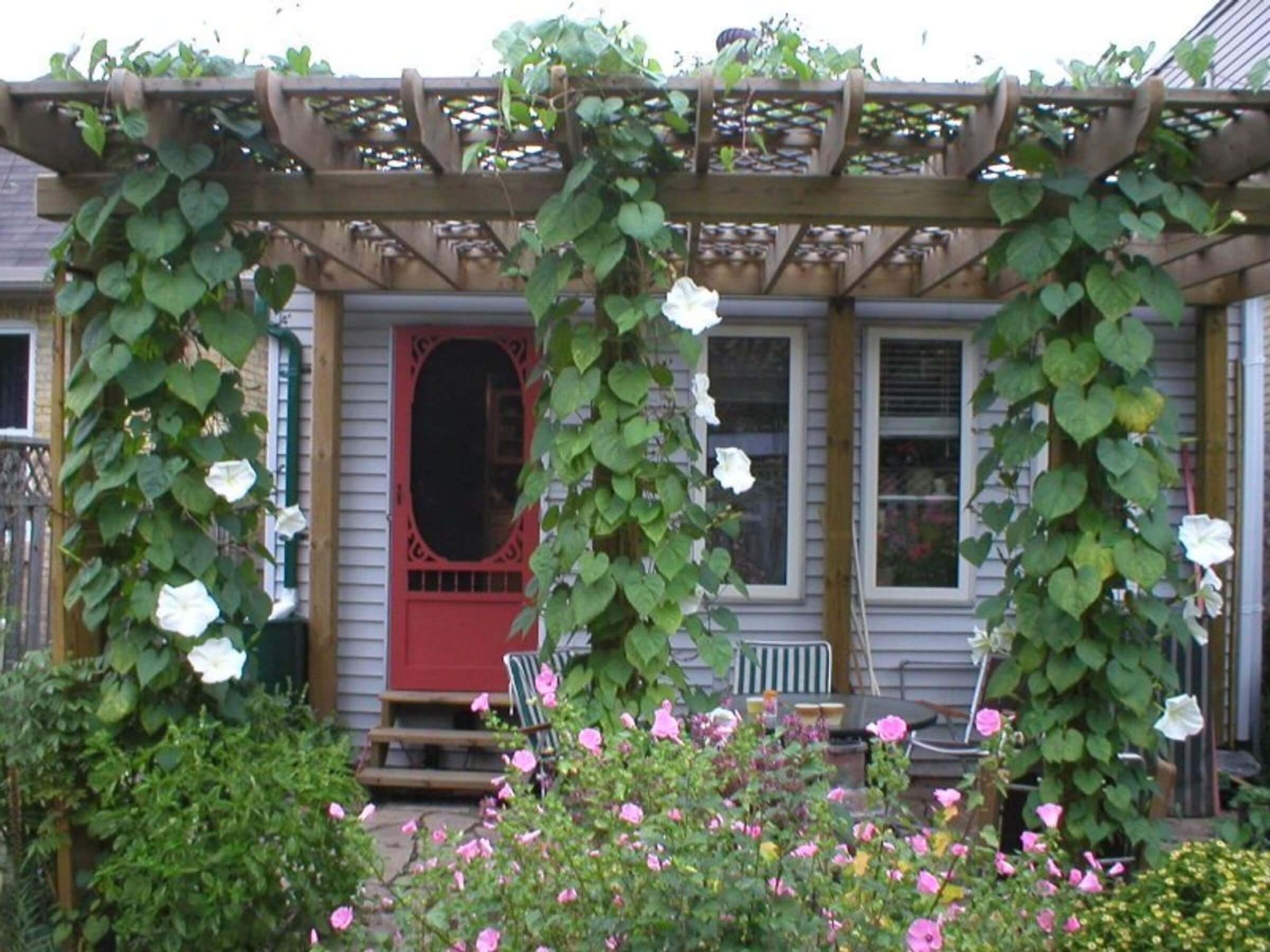 Source: Dengarden
Source: Dengarden
A night garden can enjoy the stunning beauty and potent smell that the delicate perennial vine moonflower brings. The fact that it blooms after nightfall towards the end of the day contributes to its singularity. The unusual annual vine yields a big, fragrant white blossom. Gardeners love nothing more than to grow flowering vines, prominently moonflowers.
#15. Bower Vine
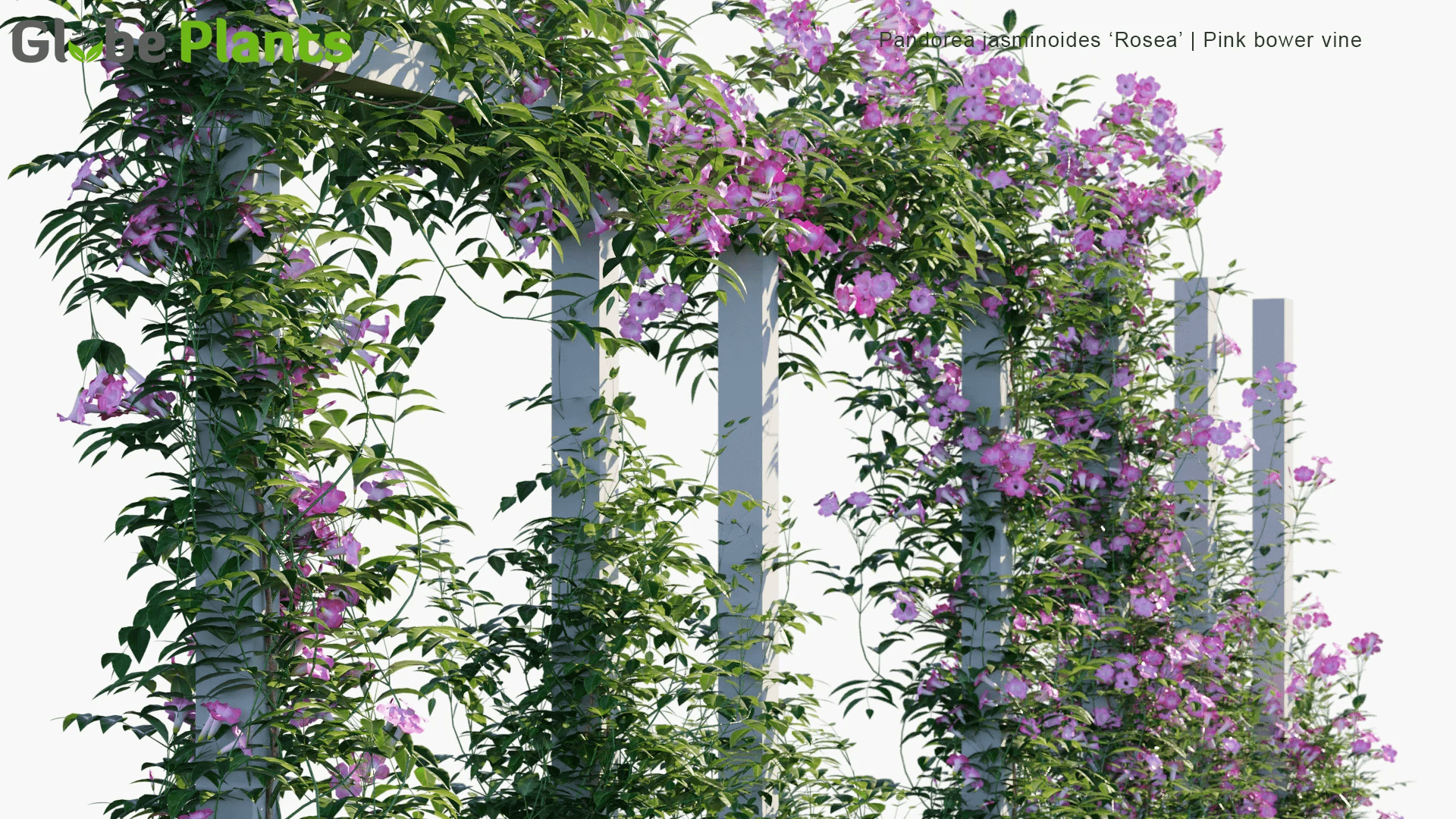 Source: Globe Plants
Source: Globe Plants
The bower vine is a lovely, subtropical twining plant that blooms most of the year with fragrant pink and white blossoms. Growing a bower vine will be rewarded with the correct care. It spreads out with a delicate, open structure as opposed to growing particularly densely. It simultaneously expands swiftly and functions as a screen.
#16. Bougainvillea
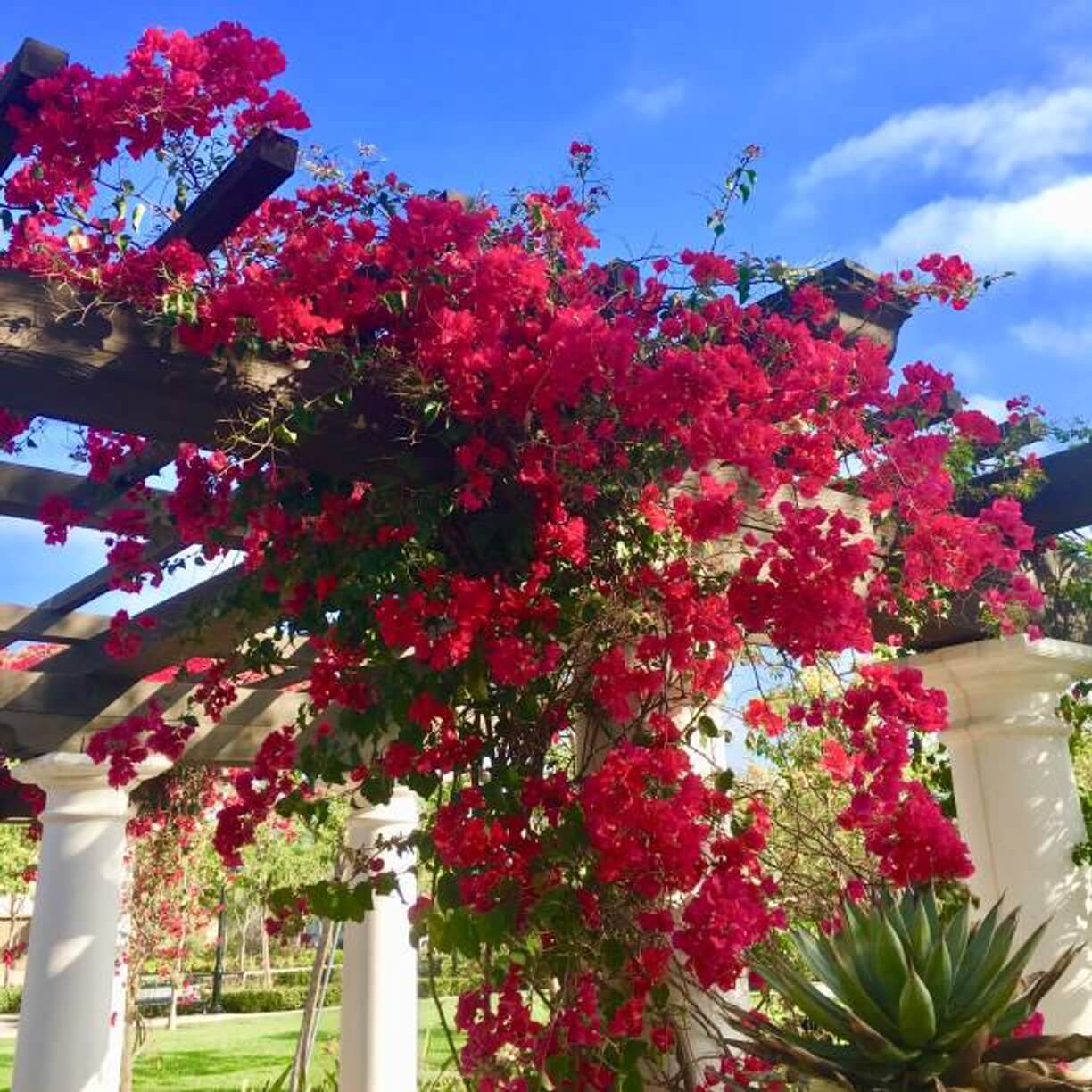 Source: iStock
Source: iStock
To make it easier to climb, many people choose to lean vining against a trellis or wall. When large enough, bushy bougainvillea often makes a superb hedge. Since that the bougainvillea is a thorny climbing vine, its optimum climbing supports are cables, a trellis, or a pergola. The majority of bougainvillea cultivars require a lot of hot, direct sun as well as good airflow to grow.
